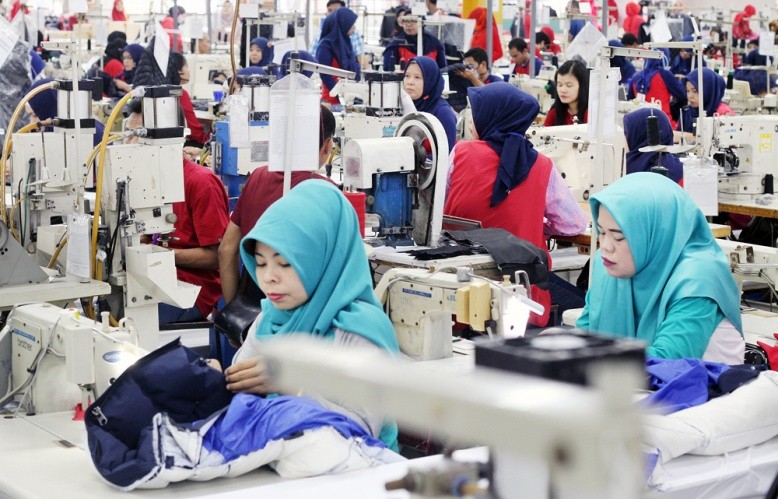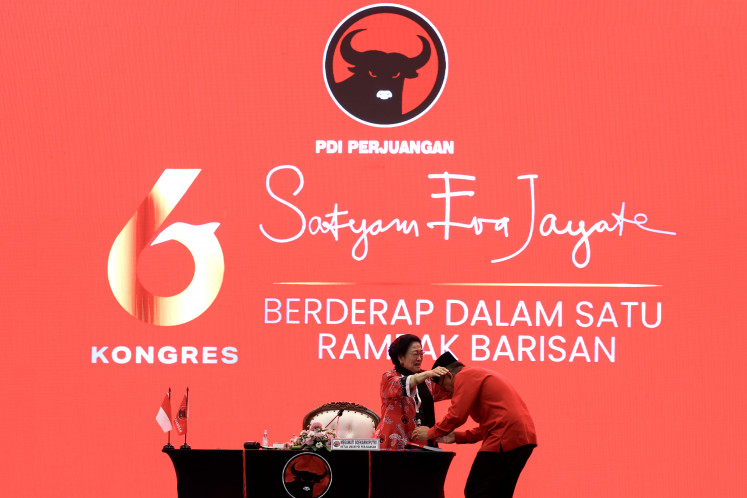Popular Reads
Top Results
Can't find what you're looking for?
View all search resultsPopular Reads
Top Results
Can't find what you're looking for?
View all search resultsRobust domestic sales offset export dip for textile maker Trisula
Textile producer Trisula International increased domestic sales by 24.6 percent year-on-year (yoy) in the first half of 2023, more than making up for a decline in exports and making the firm an outperformer in its industry.
Change text size
Gift Premium Articles
to Anyone
P
T Trisula International has reported a 2.9 percent year-on-year (yoy) increase in sales in the first half of 2023, as strong domestic sales more than made up for a dip in exports. Profit leaped by 44 percent over the same period.
From January through July, the publicly listed textile and garment manufacturer achieved net sales of Rp 680.8 billion (US$44.9 million), up from Rp 661.3 billion a year earlier, according to its financial report published on Friday.
Profit rose to Rp 43.5 billion from Rp 30.2 billion in the equivalent period of 2022.
The overall strong performance comes despite a 7.3 percent yoy drop in exports, which remains the company’s primary source of revenue, as domestic sales skyrocketed by 24.6 percent yoy.
Exports account for 61 percent of the company’s total net sales.
The boost in domestic sales was largely attributed to its textile-focused subsidiary, PT Trisula Textile Industries, according to the release.
The subsidiary, operating as a retail representative for renowned international apparel brands including JOBB and Jack Nicklaus, recorded a 16.7 percent rise in sales to Rp 237.4 billion in the first half of the year, as indicated in its own financial report.
Its profit rose 47.4 percent over the same period, driven mainly by strong demand for its products during the Idul Fitri holidays in April.
The company announced plans to open 14 new sales points in 2023.
Shares of Trisula International, which is listed on Indonesia Stock Exchange under the ticker code TRIS, jumped 9.7 percent on Friday, though they gave back some of those gains with a 1.9 percent drop on Monday.
While the prospects remained generally positive, the overall garment industry performance had not been optimal in the second quarter, market analyst and CEO of Edvisor.id Praska Putrantyo observed.
“If I make a comparison, issuers in the [textile and garment] sector aren’t all on the same [performance] trajectory. A majority [of companies] are decelerating, which makes [TRIS] an outlier,” he said, noting that the company’s strong domestic sales mitigated the drop in exports to a global market that was still in a recovery phase.
He explained that the current difficulties afflicting the textile industry had caused an annual decline of 0.45 percent in domestic sales as of May, while high borrowing costs added to unfavorable circumstances for the industry.
“The interest rate hike has affected people's expenditure on retail goods, including textiles,” Praska explained, “and [the decline] also extends to the competition with imported goods.”
Results published in late July from the most recent industry confidence index (IKI) survey conducted by the Industry Ministry indicated an ongoing decline in textile sector exports to key markets including China, the United States and Europe.
Notably, the textile industry was identified in the ministry’s report as one of the three manufacturing subsectors currently facing contraction.
The Industry Ministry’s interim Chemical, Pharmaceutical and Textile Industries (IKFT) Director General Ignatius Warsito explained that the textile industry's growth slump could be attributed to its heavy reliance on exports, as reported by Kompas on Monday.
Industry Minister Agus Gumiwang Kartasasmita said domestic producers were additionally impacted by an influx of imported goods saturating the local market.
The minister called for strict supervision over goods entering the domestic market through bonded logistics centers (PLB) and extending that supervision to marketplaces serving as entry points for imported textile products.










